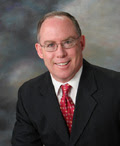These women were not right-wing fanatics or narrow-minded bigots. These were professional, successful, and thoughtful leaders who are willing to join hands, roll up their sleeves and get to work solving the real social challenges of our day.
The group includes business owners and executives, nationally-known leaders in the arts and many who know what it is to lead voter registration drives and be insulted for their Republican identity. These are courageous and insightful people and it was a joy to interact together.
I mention this meeting in order to give my readers a window into the best that politics has to offer. In all of the egoistic polemics we see in the media from Left and Right, we forget the moral strength and hard work of so many who deeply care about their communities and our nation.
Take time soon and thank someone who volunteers in the community - whether it is at your local hospital or school or in some other field. These are the real heroes.
I shared four keys to a transformed personal and social future that I want to encapsulate here and expand upon in coming columns:
- Key # 1: Humility calls us to never lose the wonder of the "starry heavens above and the moral law within." (Immanuel Kant) We are beckoned to remember that we are not the center of the universe and that others really matter.
- Key # 2: Honesty with ourselves and others is not bluntness or crassness, but clarity and integrity in our words and commitments. Why do we need spin doctors explaining press secretaries' interpretations?
- Key # 3: Helpfulness reminds us that we find much greater joy seeing others encouraged and help than in selfishly pursuing our own success withoutr regard for those who help us! Who are we helping to move ahead today?
- Key # 4: Hope is not wishful utopianism, but the belief that our future can be better when today's choices are rooted in lasting values and an enduring vision.
Humility, honesty, helpfulness and hope - whay not demand that every public servant, whether appointed or elected, ascribe to this "foursquare" set of values?
A better future begins today!
